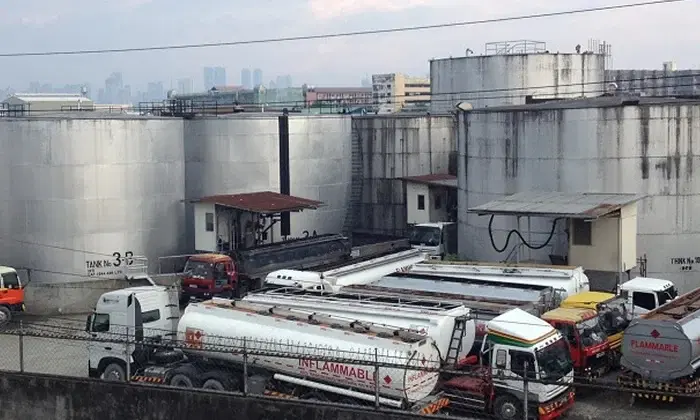The average depot price of Premium Motor Spirit (PMS), popularly known as petrol, has declined to ₦880.5 per litre as increasing competition among private importers drives down wholesale prices across the downstream petroleum market. Industry players say the price adjustment reflects improved fuel availability, stable foreign exchange access, and heightened rivalry among major importers and depot owners following the government’s deregulation policy.
Market data from the Petroleum Products Retail Outlets Owners Association of Nigeria (PETROAN) and findings from several private depots in Lagos, Warri, and Port Harcourt indicate that depot prices, which recently ranged between ₦900 and ₦1,030 per litre, have now eased significantly to an average of ₦880.5 per litre. The development, stakeholders say, is beginning to create room for moderate retail price adjustments at filling stations.

According to market sources, the price moderation has been influenced by the entry of more private players into the fuel import and distribution chain, resulting in improved supply competition. Previously, the Nigerian National Petroleum Company Limited (NNPCL) dominated importation and bulk distribution of petrol, but private marketers have recently resumed large-scale importation as access to foreign exchange stabilised.
An operator at the Apapa depot hub, who spoke on condition of anonymity, said: “The entry of new importers and consistent supply from major players like NNPCL and independent marketers have created a more competitive environment. Depots are now adjusting prices to attract retailers and maintain market share.”
The National Operations Controller of the Independent Petroleum Marketers Association of Nigeria (IPMAN), Mr. Mike Osatuyi, confirmed the trend, stating that the fall in depot prices is a natural consequence of increased competition and improved logistics. “We are beginning to see the effects of deregulation working. With more importers coming in, the market is responding. Prices are now determined by market forces,” he said.
Osatuyi, however, noted that retail pump prices have not yet reflected the full impact of the depot price drop due to transportation costs, inflation, and local levies. “By the time more products flood the market, consumers will begin to feel the relief. For now, marketers are cautiously adjusting prices to maintain margins,” he added.
Industry observers attribute the recent price moderation to the Central Bank of Nigeria’s (CBN) intervention in the foreign exchange market, which has stabilised the naira at around ₦1,421/$. The more predictable exchange rate has made fuel importation relatively cheaper compared to the volatile periods of 2023 and early 2024 when forex scarcity caused significant cost escalations.
An energy economist, Dr. Balogun Adefemi, explained that “the stabilisation of forex supply, combined with efficient port operations and improved transparency in fuel sourcing, has reduced the landing cost of petrol.” He estimated that the average landing cost of imported PMS currently stands at between ₦850 and ₦860 per litre, compared to over ₦950 per litre recorded a few months ago.
The analyst added that competition among importers like Dangote Refinery, Rainoil, Emadeb Energy, and A.A. Rano has intensified, especially as local refining capacity gradually expands. “What we are seeing now is the market beginning to self-correct. With more depots trying to attract retailers, wholesale prices are dropping. The coming months will show whether this translates into lower pump prices,” he noted.
Meanwhile, the Major Energy Marketers Association of Nigeria (MEMAN) has expressed optimism that sustained competition and improved local refining will eventually stabilise prices. MEMAN’s Executive Secretary, Clement Isong, said the ongoing market realignment is positive for the sector’s long-term efficiency.
“The deregulated environment encourages investment and healthy competition. What we need is consistent policy support, access to forex, and stable supply chains. If these are sustained, Nigerians will begin to enjoy lower and more predictable fuel prices,” Isong stated.
Government officials have also welcomed the development, describing it as evidence that the deregulation of the petroleum sector is beginning to yield tangible results. A senior official at the Ministry of Petroleum Resources, who preferred not to be named, said the current price movement validates the government’s reform agenda.
“What we are witnessing is the invisible hand of market forces taking effect. The government is monitoring the situation closely to ensure transparency, fairness, and consumer protection,” the source said.
However, some independent marketers have cautioned that sustained price stability will depend on logistics and distribution efficiency. They cited challenges such as high freight charges, depot handling fees, and insecurity on major supply routes as factors that could limit price transmission to the retail level.
A depot owner in Port Harcourt, Mrs. Ifeoma Agbaje, explained that while depot prices have fallen, operational costs remain high. “Transporting products from the ports to inland depots still costs a lot due to insecurity and bad roads. Until that improves, pump prices might not drop significantly,” she said.
In the short term, analysts predict that petrol prices could fluctuate within the ₦850–₦900 per litre range at the depot level if current supply and exchange rate trends persist. They added that further reduction could occur once the Dangote Refinery begins full-scale domestic supply, expected to significantly reduce import reliance and logistics costs.
“The refinery’s operations will be a game-changer,” said Dr. Adefemi. “Once Dangote starts supplying PMS locally in large volumes, Nigeria’s fuel pricing will be less exposed to international shocks, freight costs, and foreign exchange volatility.”
As of the latest market survey, most retail stations in Lagos sold petrol between ₦950 and ₦1,000 per litre, while stations in Abuja and other northern cities priced it between ₦980 and ₦1,050 per litre, depending on transportation distance and distribution costs.
With competition deepening and policy reforms taking hold, stakeholders say Nigeria’s downstream sector is on the path toward efficiency, transparency, and gradual price moderation—marking one of the first clear signs of stability since the end of fuel subsidies.
Support InfoStride News' Credible Journalism: Only credible journalism can guarantee a fair, accountable and transparent society, including democracy and government. It involves a lot of efforts and money. We need your support. Click here to Donate
